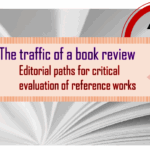Cristiane Oliveira Reimberg, Analyst in Science and Technology, Journalist at Fundacentro, São Paulo, SP, Brazil.
 In the neoliberal phase of capitalism, domination over workers operates through the control of subjectivity, and performance evaluation instruments assist in this process. The Mental Health and Subjectivity dossier of the Brazilian Journal of Occupational Health/Revista Brasileira de Saúde Ocupacional (RBSO) presents studies that help elucidate these forms of domination. This is the case of the article Capturing bank employees’ subjectivity as a management technology: study of an performance evaluation instrument (vol. 49, 2024).
In the neoliberal phase of capitalism, domination over workers operates through the control of subjectivity, and performance evaluation instruments assist in this process. The Mental Health and Subjectivity dossier of the Brazilian Journal of Occupational Health/Revista Brasileira de Saúde Ocupacional (RBSO) presents studies that help elucidate these forms of domination. This is the case of the article Capturing bank employees’ subjectivity as a management technology: study of an performance evaluation instrument (vol. 49, 2024).
The research examines a performance evaluation system used by a private Brazilian bank, aiming to uncover the managerial rationality underlying such technologies. It demonstrates how these systems, under the guise of neutrality, undermine collegial solidarity and establish competition, dividing employees into winners and losers.
The performance evaluation tool, used until recently in a private Brazilian bank, assessed quantitative goals (objective dimension), named as X ,and conformity with prescribedbehaviors, Y, that are valued by the organization (subjective dimension).

Image: Drazen Zigic via Freepik
The analysis revealed that its structure prevents everyone from succeeding and no one from failing. Even under the most favorable conditions allowed by the system, at least 5% of employees must be classified within “low performance in X,” “low performance in Y,” and “critical performance.” Furthermore, the tool excludes at least 50% of workers from attaining the highest rating.
Within this framework, employees experience “constant and unceasing self- and peer-surveillance.” The supposed neutrality of such instruments, as if governed exclusively by mathematical parameters, renders the “active subject of domination internalized within the dominated individual,” rather than “attached to an external figure (the employer/ the capital).”
“This situation leads the worker to not realize that their failure in the performance evaluation does not arise from subjective insufficiencies, but is caused by an objectively exclusionary structure”, explains André Guerra, from the Faculty of the Center for Family and Individual Studies, Porto Alegre (RS).
“Today, more than ever, power manifests itself through the control of subjectivity. In line with this mode of domination, the sophistication of management techniques produces serious psychosocial effects. While it compels workers to constantly monitor themselves and others, it also fosters an environment of generalized competition”, he concludes.
To access the article
GUERRA, A. Capturing bank employees’ subjectivity as a management technology: study of an performance evaluation instrument. Rev Bras Saúde Ocup, Thematic Dossier: Mental Health and Subjectivity [online]. 2024, vol. 49, edsmsubj2 [Viewed 3 November 2025]. https://doi.org/10.1590/2317-6369/18422pt2024v49edsmsubj2 Available from: https://www.scielo.br/j/rbso/a/R6z9tYMXq5SCHmMtmL8C7dq/
External links
Revista Brasileira de Saúde Ocupacional – RBSO
Revista Brasileira de Saúde Ocupacional (Fundacentro)
Revista Brasileira de Saúde Ocupacional – X
Como citar este post [ISO 690/2010]:


















Recent Comments